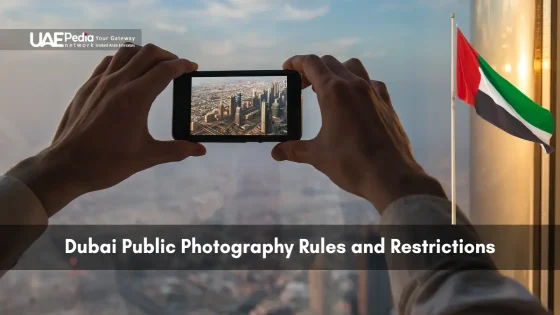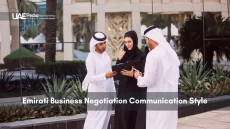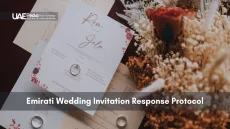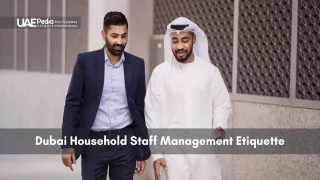In a culture where every gesture holds meaning, the unspoken rules of shared meals can make or break partnerships. While many focus on what to discuss during professional gatherings, seasoned professionals know that where you sit speaks volumes before the first course arrives.
Traditional Emirati hospitality blends warmth with precision. Senior guests often receive prime seating—like the spot to the host’s right—to honor their status. Menus might feature communal dishes served on grand platters, encouraging collaboration through shared portions. Yet even these customs adapt: spoons appear seamlessly if guests prefer utensils over eating with their right hand.
Modern venues balance tradition with global flair. From sleek skyscraper restaurants to heritage-inspired spaces, choices reflect both cultural respect and contemporary needs. Our guide unpacks everything from navigating alcohol-free menus to selecting venues that impress without overshadowing your agenda. For a deeper dive into foundational practices, explore our breakdown of practical basics for UAE business meals.
UAE business meals blend Islamic etiquette with hierarchical seating: senior guest sits to the host’s right; service proceeds right-hand only for food exchange, left hand kept off the table. Pork and alcohol are excluded unless the venue is licensed; if alcohol is served, consumption must be discrete and never precede driving. Work week is Sun–Thu; during Ramadan no food, drink, or celebratory functions occur between sunrise and sunset.
Reserve restaurants with Western or Emirati cuisine that offer private rooms, adjustable lighting, and sound control. Confirm dietary accommodations in advance; host always pays bill plus 10–15 % gratuity. Begin with cultural small talk, transition to light business references mid-meal, and finalize action items over coffee.
- Seating hierarchy directly influences perceived professionalism and respect
- Communal dining styles foster teamwork but require cultural awareness
- Venue selection impacts conversation flow and meeting outcomes
Fundamentals of Dubai Business Lunch Seating Arrangements
Picture this: you’re breaking bread with potential partners, and every gesture becomes a silent language. While menus and venues matter, mastering how you engage at the table often determines success more than what’s on your plate.
Cultural Etiquette in the UAE
Here’s a golden rule—use your right hand for everything. Why? It’s rooted in tradition and perceived cleanliness. Left hands stay discreetly in your lap unless passing dishes. Watch locals: they’ll often pause conversations to ensure everyone gets equal portions from shared platters.
In Emirati dining, the right hand is exclusively used for eating, passing dishes, and accepting food to uphold cultural notions of cleanliness and respect. Ref.: “EtiquetteScholar.com (2025). Dining etiquette for your hands. Etiquette Scholar.”
Conversation matters as much as cutlery. Steer clear of politics or personal finances. Instead, discuss innovation or mutual interests. One Emirati CEO once told me: “Good meals build bridges—controversial topics burn them.”
Traditional Customs & Unspoken Codes
Communal dining isn’t just about food—it’s teamwork in action. Large platters encourage collaboration, but remember:
- Serve others before yourself
- Never point the soles of your shoes toward others
- Accept Arabic coffee with your right hand—it’s a sign of respect
Pro tip: If you’re hosting, seat senior partners closest to you. This subtle hierarchy shows awareness without formal announcements. Modern spots blend these traditions with global influences, offering utensil options while keeping cultural spirit intact.
Get this right, and you’re not just sharing a meal—you’re building trust bite by bite. Now, let’s explore how to choose venues that elevate these connections.
Read More:
Selecting the Ideal Venue and Setting for Business Lunches
Imagine walking into a space where every detail whispers professionalism yet feels inviting—that’s the sweet spot for sealing deals over shared plates. Venues like Grand Entree prove it’s possible: their sound-dampened ceilings let conversations flow freely, while floor-to-ceiling windows frame the city’s energy without overwhelming the table.
Tips for Choosing Top Restaurants and Ambiance
Lighting matters more than you’d think. Dim enough to relax, bright enough to read contracts. Seven Seeds nails this balance with adjustable pendant lights above each table. Their staff? Trained to refill water glasses from the right side—a small touch that screams attentiveness.
“We choreograph service like theater—timing courses to match meeting rhythms,” says Rania Al-Mansoori, manager at Seven Seeds.
| Indoor | Outdoor | Hybrid |
|---|---|---|
| Climate control | Natural light | Retractable roofs |
| Quieter discussions | Casual vibe | Flexible transitions |
| Year-round option | Seasonal appeal | Best of both worlds |
Balancing Indoor and Outdoor Options
Rooftop terraces work wonders for creative brainstorming sessions—until a helicopter passes. Always have a backup indoor table reserved. Pro tip: Check sunset times if choosing al fresco spots. Nobody negotiates well squinting into sunlight.
Rooftop venues in Dubai face operational limits during extreme heat and sandstorms; always confirm a climate-controlled indoor table as backup. Ref.: “BeholdDubai.com (2025). Discover Dubai’s best rooftop restaurants. Behold Dubai.”
Evaluating Service Quality
Watch for how staff handle dietary requests. Top-tier places like Grand Entree present gluten-free bread without prompting when allergies are mentioned. Their discreet crumb-sweeping between courses? That’s the unspoken language of five-star professionalism.
Strategies for Effective Table Arrangements and Conversation Flow
Think of your table as a symphony—every seat plays a note in the harmony of professional exchange. Let’s explore how strategic placement and intentional dialogue create rhythm in your meetings.
Seating Hierarchy: Respecting Seniority and Host Positioning
Here’s a golden rule: the host anchors the table’s power dynamic. Position yourself at the head or center, with the highest-ranking guest to your immediate right. At Al Bait Hotel’s private dining rooms, CEOs often use this setup—it signals authority while keeping key collaborators within easy reach.
Why does this matter? A local HR director once shared: “When junior staff accidentally take priority seats, trust erodes faster than spilled cardamom coffee.” Use round tables for equal footing or rectangular ones to emphasize hierarchy, depending on your goals.
Guidelines for Initiating and Balancing Business Topics
Start with the weather—literally. Desert dwellers often open with climate remarks before easing into work talk. Try this pattern:
| Phase | Topics | Transition Cues |
|---|---|---|
| Pre-meal | Local culture, travel stories | “How was your journey here?” |
| First course | Industry trends, light project mentions | “This dish reminds me of our expansion plans…” |
| Post-meal | Action items, next steps | “Shall we finalize timelines over coffee?” |
Pro tip: Watch for utensil placement. When guests set down forks and lean forward, it’s your green light to dive deeper. At Seven Sands restaurant, managers train staff to pause service during crucial discussions—ensuring your words land without clattering plate interruptions.
Interpreting fork-and-knife placement varies by culture; relying solely on utensil cues may result in misreading a guest’s readiness for substantive discussion. Ref.: “Wikipedia contributors (2025). Eating utensil etiquette. Wikipedia.”
Remember: fluid conversations mirror shared meals. Pass ideas like mezze plates—offer generously, listen actively, and let silence simmer when needed. Get this balance right, and you’ll leave fuller than after a Friday feast.
Dubai Business Lunch Seating Arrangements: Best Practices and Etiquette
Navigating a professional meal here feels like mastering a cultural dance—every step matters, but grace comes from knowing when to lead and when to follow. Let’s explore how to glide through these interactions with confidence.
Practical Do’s and Don’ts for a Smooth Experience
| Do’s | Don’ts | Why It Matters |
|---|---|---|
| Arrive 5 minutes early | Discuss sensitive topics | Shows respect for schedules |
| Dress in smart casual attire | Reject dishes abruptly | Maintains focus on goals |
| Let the host initiate work talk | Insist on splitting the bill | Honors local hospitality norms |
“We train servers to remove empty plates within 30 seconds,” shares Khalid Al-Farsi, a veteran maître d’ at a prominent waterfront venue. “It keeps energy flowing toward the meeting, not leftovers.”
When offered Arabic coffee, accept it with your right hand—even if you take just one sip. Declining entirely might unintentionally signal disinterest.
Navigating Dietary Preferences and Menu Choices
Most menus highlight gluten-free and vegetarian options. For allergies, mention them discreetly when ordering. Pro tip: Scan for “machboos” (spiced rice dishes) or grilled meats—they’re crowd-pleasers that rarely clash with dietary needs.
If alcohol is served, let guests take the lead. Many locals abstain, so follow their cues. When the check arrives, the inviter typically pays. Leave 10-15% cash tip unless service charges are included.
In the UAE, only non-Muslims may consume alcohol legally, and many local Emiratis abstain entirely; following guests’ drinking cues is both courteous and compliant. Ref.: “Globig.co (2025). A Quick Guide to Business Etiquette in the United Arab Emirates. Globig.”
Remember: these moments aren’t just about food. They’re about building bridges—one thoughtful bite at a time.
Final Tips for a Seamless and Professional Business Lunch
Breaking bread with colleagues isn’t just about the menu—it’s choreography where every gesture builds trust. Nail the rhythm with three essentials: prepare, adapt, follow through.
Arrive early—five minutes shows respect for others’ time. Dress sharp but comfortable; think tailored blazers over stiff suits. When ordering, choose dishes that are easy to share but won’t distract from conversation. A local executive once whispered: “The best meetings happen when forks pause mid-air because the discussion’s too good.”
After dessert? Send a handwritten note within 24 hours. Reference a specific moment from your talk—it proves you listened. Schedule follow-ups while ideas are fresh, but avoid Mondays (Emirati weekends shift priorities).
Master these steps, and you’ll transform meals into milestones. Ready to turn insights into action? Your next professional gathering could spark partnerships that outlast the coffee stains on your contract draft.
In the UAE, respecting seniority shows cultural awareness. The host typically faces the entrance, with highest-ranking guests seated to their right. This mirrors traditional majlis customs where honor positions signal respect—a subtle but crucial detail for building trust.
Proactively ask about preferences when booking—top spots like Al Fanar Restaurant or Observatoire often note allergies discreetly. During the meal, avoid drawing attention to special requests. Phrases like “I’ve heard the grilled hammour is excellent here” gently steer choices without singling anyone out.
Patience pays. Start with light topics—Dubai’s architecture, or shared interests—while appetizers arrive. Let the host cue business talk, often after mains. At venues like Zuma or Ce La Vi, the view provides natural conversation starters to ease into negotiations organically.
It depends. Beachfront spots like Pierchic work for creative brainstorming, while air-conditioned majlis-style tables at Al Hadheerah better suit sensitive talks. Always confirm noise levels and privacy when reserving—some rooftop gems surprise with midday music!
Follow their lead. If they eat with the right hand (as per local custom), mirror this. For unfamiliar dishes like machboos, a polite “This looks delicious—how do you recommend enjoying it?” shows respect. Most Emirati professionals appreciate curiosity done gracefully.
Generally, the inviter pays. If hosting, discreetly arrange payment beforehand. As a guest, offering once is polite—but insist only if culturally aligned (e.g., with European partners). For mixed groups, upscale spots like Tresind Studio often provide separate checks upon request.


















